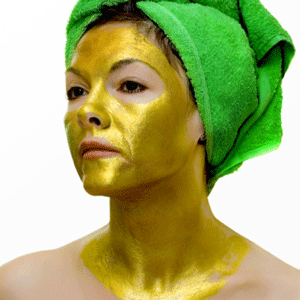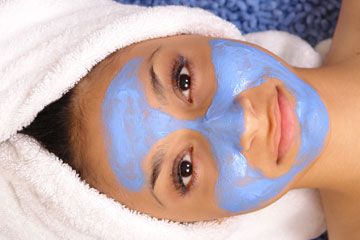Just about every woman alive has spent a few moments in the morning gazing into a mirror, examining her skin and contemplating the size of her pores. She can usually thank mom or dad for what she sees: Like other skin characteristics, pore size is mostly determined by genetics. Fair-skinned people have smaller pores, while those with olive or darker skin have larger pores.
What are pores, anyway? They're the openings of your hair follicles, and each one contains a sebaceous gland that produces oils. Pores are larger around the nose, chin, and forehead, where you have the largest glands. If your skin is dry, your pores may seem almost invisible; if your skin is oily, your pores are more noticeable.
Advertisement
Pore size may also be affected by normal fluctuations in skin condition and aging. When dead skin cells and sebum (the natural oil secreted by the sebaceous glands all over your skin) get trapped inside one of those tiny skin openings, a pimple may form. Over time, pores may enlarge permanently. Prolonged -- and cumulative -- exposure to ultraviolet (UV) rays weakens the collagen that supports pores and keeps them tight, and that's why pores become more visible as you age.
For generations, women in search of clear, smooth complexions have used facials to help shrink the size of their pores, often turning to their pantries to mix up homemade concoctions. Honey, egg whites, oatmeal, avocado, and bananas are a few of the ingredients that women have slathered on their faces in the name of glowing skin.
Over-the-counter remedies won't really shrink pore size, but they will make them appear less noticeable. Regular exfoliation can help with the appearance of large pores by removing dead skin cells from the skin's surface. Choose a product with salicylic acid to clear out dirt, oil and cell buildup, or one with a sloughing ingredient like alpha hydroxy acids, retinol, or fruit enzymes.
If you're looking for an even more dramatic fix, a dermatologist may suggest a powerful prescription exfoliant such as Retin-A Micro, which helps skin turn over more rapidly, helping to "shrink" dilated pores, improve cell turnover, and enhance collagen retention [source: Wadyka]. Glycolic or salicylic acid peels can also rejuvenate skin and make pores look smaller.
Microdermabrasion or light laser resurfacing can also be effective treatments for improving your skin's appearance.
Another trick is to apply a silicone-based primer underneath your foundation that will temporarily smooth out your pores. Makeup clings to it more effectively than bare skin, so you'll look fresh and radiant throughout the day -- and your skin will look practically poreless!
Advertisement


